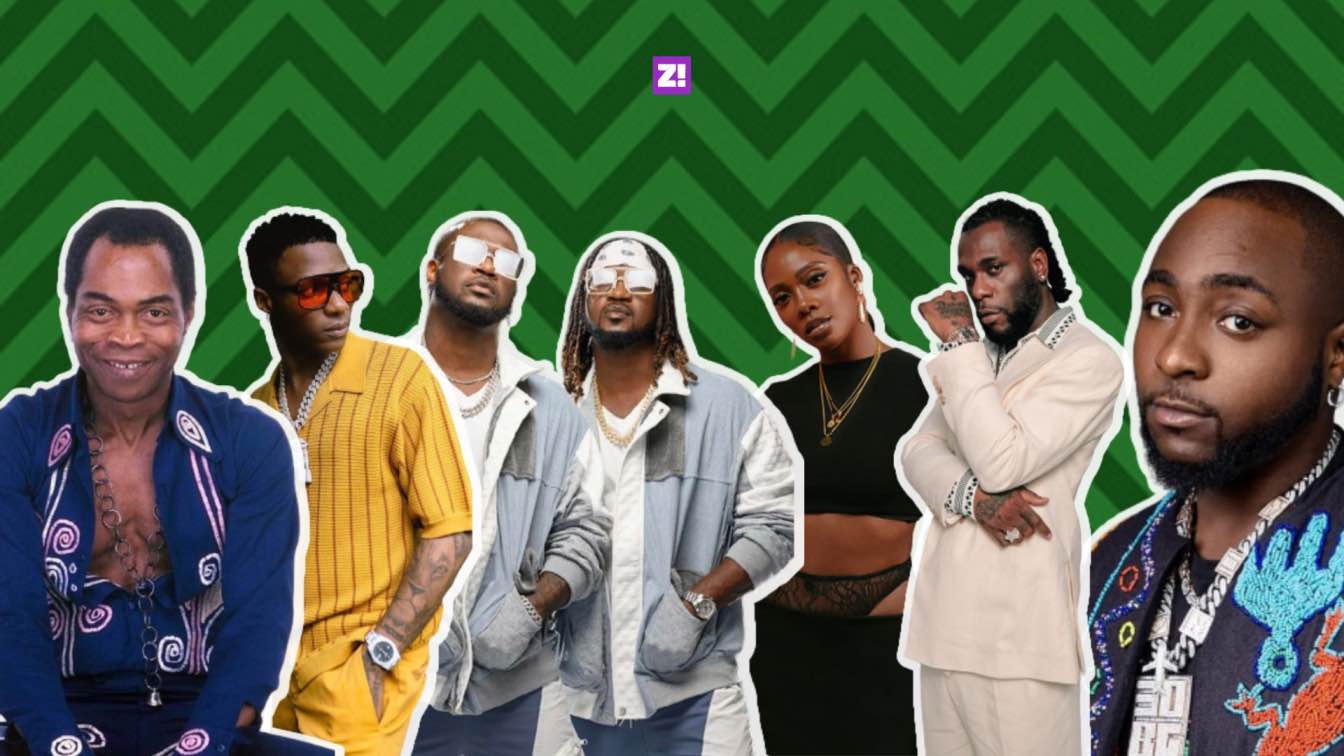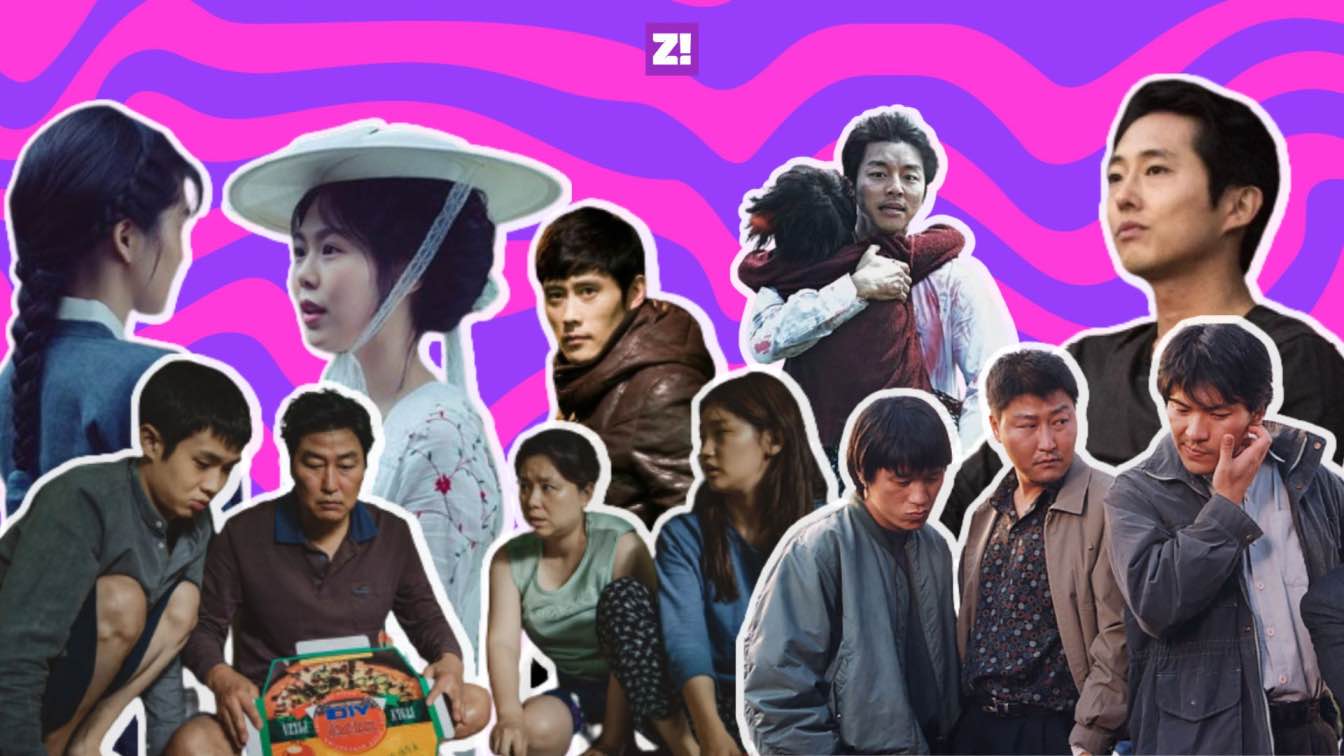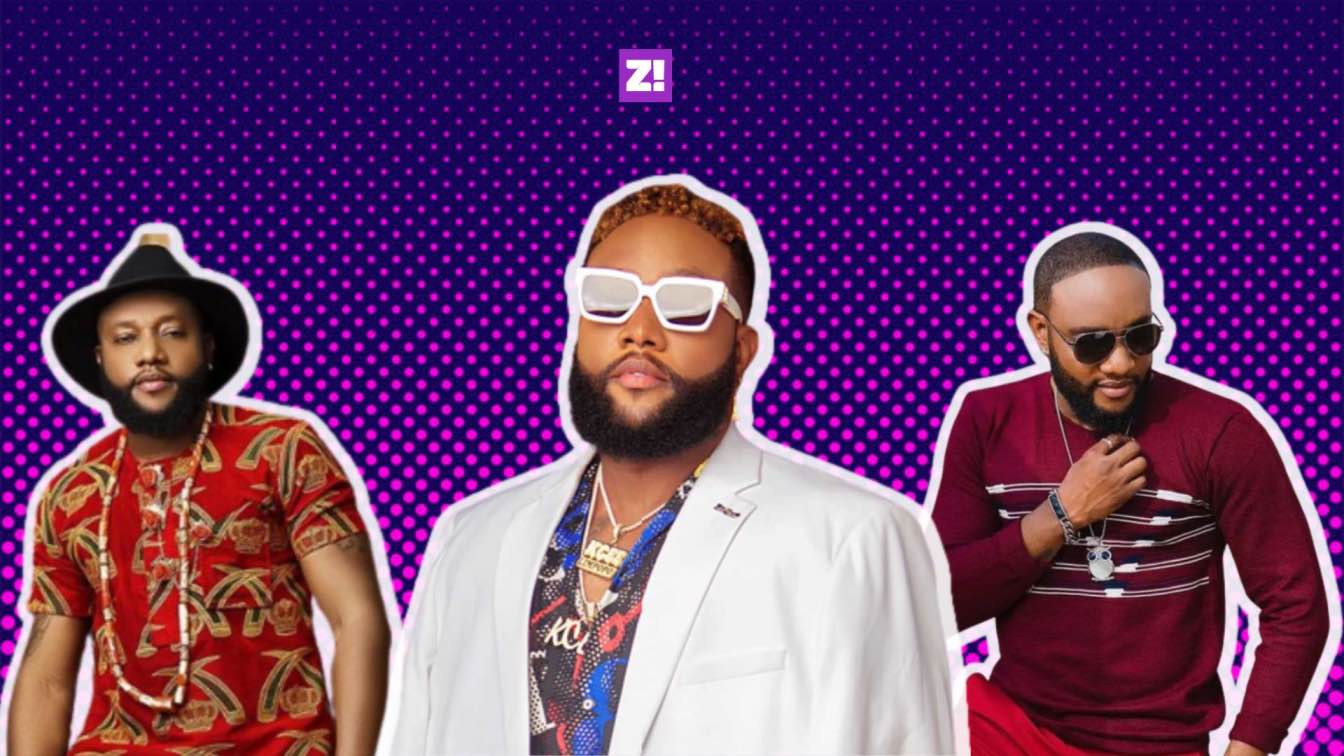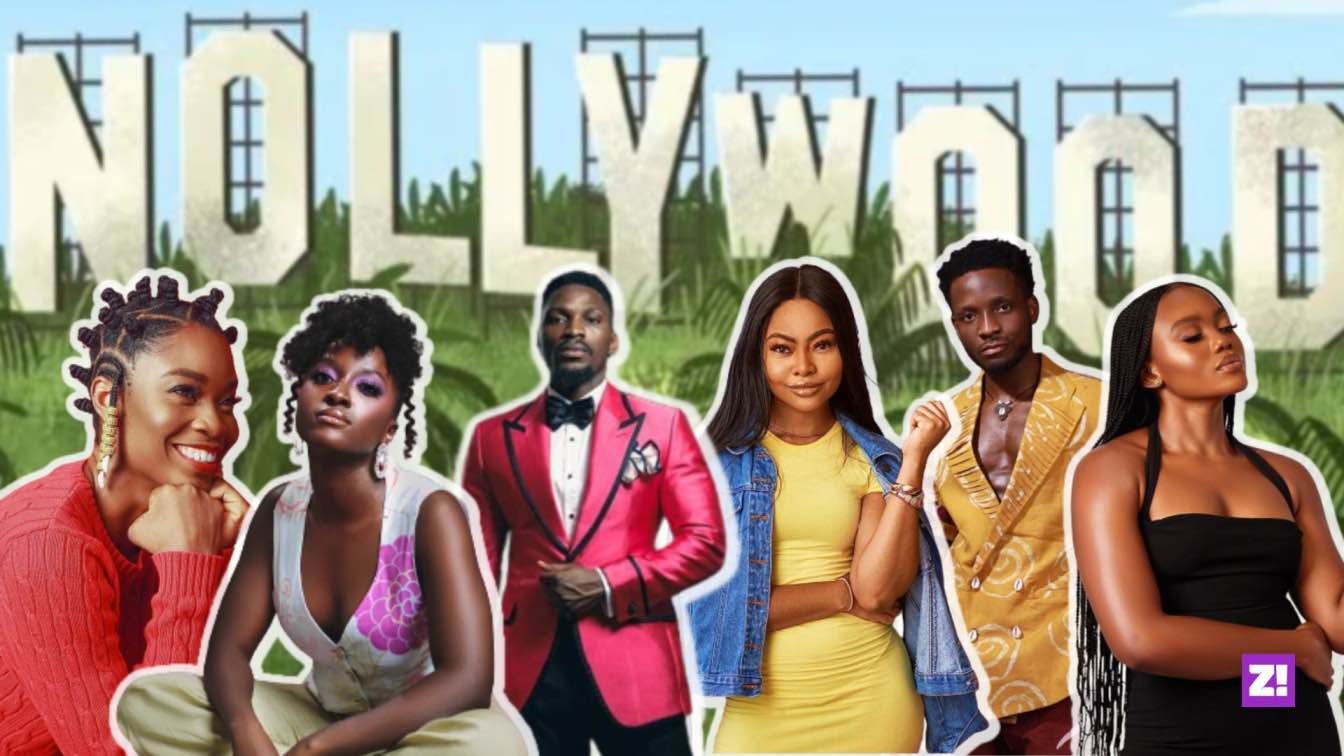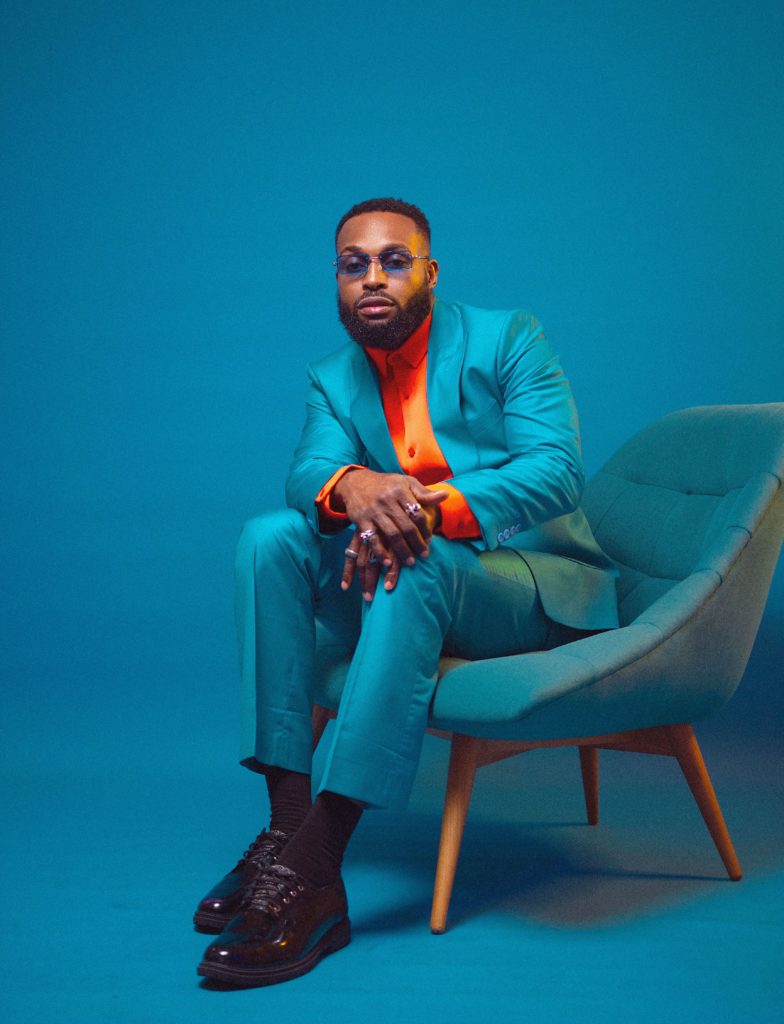
The first time Patrick Imohiosen saw a DJ, he felt like he was witnessing magic. “I didn’t even know what it was called at the time,” he tells Zikoko. “I thought this guy had to be some sort of magician, so I went home with that memory in mind and started asking questions.”
Years later, Imohiosen, better known as DJ Neptune, has become one of the biggest DJs out of Africa. Starting songs with his signature word, “Greatness”, Neptune’s sound has become a mainstay on the Nigerian music scene with a lengthy collaborator list that has earned him the moniker, “Africa’s DJ Khaled”. Transitioning from a party DJ to working at Ray Power FM, and then, creating records of his own, DJ Neptune has worn many hats and maintained relevance over the last two decades. His debut album, Greatness, lined up superstars like Burna Boy, Davido, Yemi Alade, Runtown and MI.
Now, almost three years later, DJ Neptune is back with his sophomore album, Greatness 2.0. With 27 features cutting across different parts of the continent, the award-winning DJ has created a truly pan-African LP.
You released your debut album Greatness in 2018 and now, three years later, we have Greatness 2.0. What’s up with the gap between the first and second records?
Honestly, this album was meant to come out last year, after I had taken out a year to work on it. But Covid happened and it forced me to go back to the drawing board to work on new songs with new artists, and just rethink the album. I may just release 3.0 next year.
You’ve already worked on a new album?
At least 20% is done. We resume work in January.
Mad! What’s up with “Greatness” though? Are we sticking to that title?
LOL. Yes! It means a lot to me. Being in the game for 20 years? There must be something great about what I do. I also believe in speaking things into existence.
This album has 27 features — I counted. How did you select the artists involved?
When you DJ, you get introduced to new sounds and artists every day. Mixing and changing tracks, I get ideas of who I’d like to work with and what would work for them. I try to work on collaborations that people don’t expect. It’s not easy landing these artists, but I’m willing to wait five years if I think someone is the right fit.
Has this happened before?
Ah. Yes, it has. Blood and Fire with Jesse Jagz and MI from my last album is an example. I recorded with Jesse in 2015 but didn’t get MI’s verse until 2018. I just sat on it for three years. A lot goes into these records and it’s always insane that some tracks end up not making the album.
Any such songs on this Greatness 2.0?
There’s a sick track with Zinolesky that didn’t make this one, and because I posted a snippet a long time ago, people are dragging me.
Why?
I felt the album was already choked up. These days, people have a short attention span so you must consider that when curating an album.
Fair. So how did you decide on the final 16 tracks?
Took me about six weeks of sending private links to people I trusted for their opinion on the best 10. After a while, I just said, “fuck it”, and put it out.
Interesting. You’ve got rapidly rising stars Lojay, Cheque, Blaqbonez and Omah Lay. What drew you to these guys?
Mehn, Cheque has been able to redefine trap in a way that’s super sexy and catchy. You just want to listen to Zoom over and over again. After working with Blaqbonez, I knew I wanted him on the album. For Lojay, I was in the club and they kept playing Monalisa. I eventually got the chance to work with both of them later. With Lojay, I recorded about four songs, but we decided on putting out Only Fans with Zlatan.
For Only Fans
Brilliant. Your first-ever single was the rap hit, 123 with MI, Naeto C and Dagrin. You return to the rap scene with Ladipoe, Blaqbonez and Phyno on this album. How has rap changed since 123?
The sound and style of delivery have evolved. Rap is a bit softer and relatable, but it hasn’t alienated real Hip-hop heads. There’s an argument that Hip-Hop is dead, but I think otherwise. Rappers are evolving and trying new things.
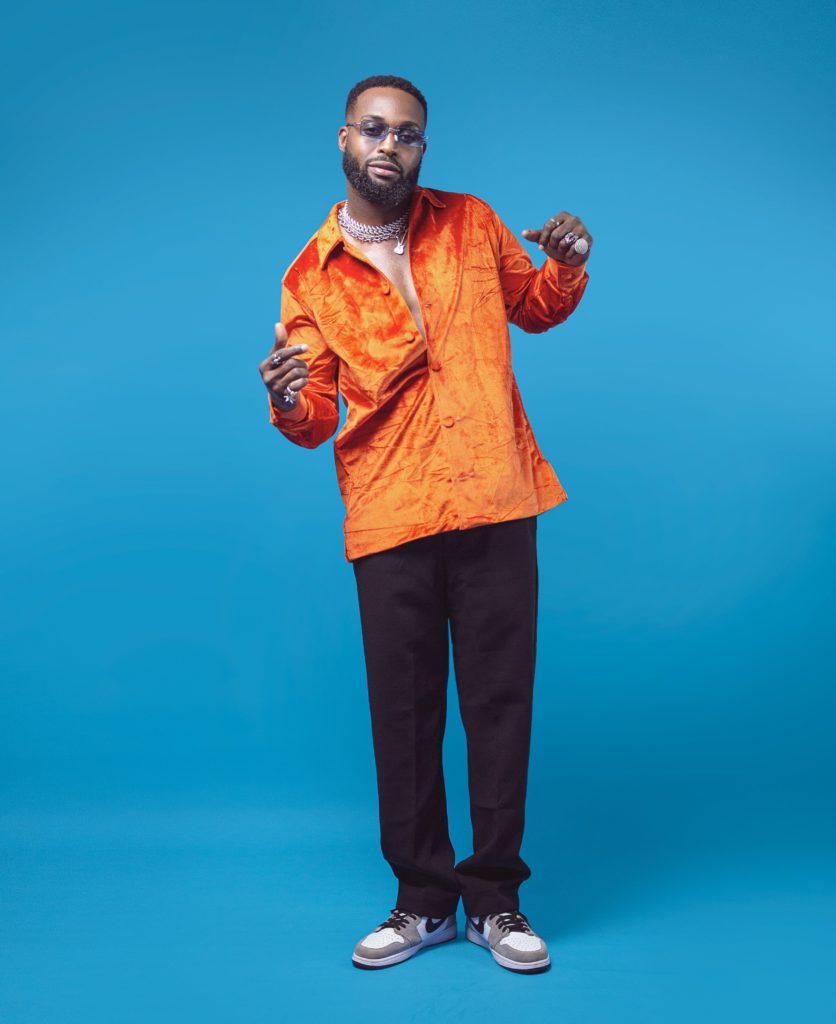
I’m curious as to how a DJ creates a record, especially when they don’t sing or produce.
There are different ways to make music. If you can produce, that’s an added value. As DJs, our knowledge of music is broad and there are genres I’ve listened to that are still bubbling under. If you have all this knowledge, you can conceptualise how you want a record to sound, work with a producer to nail the beat in your head, and then curate the artists that work on it. It doesn’t matter who produces it; it’s your idea and vision.
Nice. How do you decide the pairing of artists on your records?
I’ll use Rise Up as an example. When I got the beat, I had an idea of making a motivational song, so I called Waje and explained my idea to her. We worked on a melody and laid the foundation. Meantime, I chased like two rappers who just didn’t get my vision until I met Laycon. He had just left the BBNaija house, so he could relate to the message. To strike a balance with hard-hitting rap, I brought on Ladipoe, but it still didn’t feel complete, so I thought of adding a little soul with the Kabusa Choir.
One artist seems to be your fave, appearing on all your albums and across multiple features. What is the deal between you and Mr. Eazi?
That’s my guy. We’re friends and business partners through Empawa. Asides from that, Eazi makes beautiful music. His sound just grows on you with its catchy sing-along tune.
How do you know a sound is popping and not just some random phase?
It’s really just instinct. I listen to a lot of music and I make sure my mind is open. When I made an amapiano version of Nobody last year, people didn’t get it at first. I remember people talking about it being just a phase, but look at us a year later. And it’s only going to get bigger now that the western world is catching up with it.
Nobody blew up when we were all locked up at home. How did it feel having a hit record you couldn’t perform outside or listen to in the club?
I think the lockdown made it more of the hit it is today. It was easier to concentrate and consume music because we were all looking for entertainment. Nobody ended up being the most used song on Triller in Africa and the third overall in the world. Imagine Janet Jackson, Ludacris and Terry Riley posting it on social media. I sent Janet a DM, thanking her for posting it, and she went on about how much she loved the record. Lockdown or no lockdown, the song did what it had to do.
What is the major difference between Greatness and Greatness 2.0?
This time around, I was in a space where I wanted to create a regional project bigger than Nigeria. I wanted an album that would capture Africa as a whole. Focalistic covered amapiano and South Africa; Harmonize and Angela covered East Africa, and there’s also Hip-Life with Stonebwoy from Ghana. Streaming has made it easier to reach a wider market, so as an artist, it’s important not to limit yourself.
As an artist and a DJ, what makes a song pop?
It’s a fusion of everything. But for me, I observe the production, the melody, hook and if there’s a catchy phrase that will get people’s attention. The rap and verse could be bland, but if the chorus is catchy, people will just wait for the chorus and ignore the rest.
You’ve been in the game for 20 years now; how have you been able to hack the tricky dynamics of the industry for so long?
Mehn, first of all, it’s God’s grace. Then there’s the passion and hunger that still drives me today. Even with the positive response to this album, I’m out there looking for how to make the third one better than this. The main goal for me is not just to be identified as that DJ from Nigeria; I want to be the African DJ that can sell out any venue. If South Africa’s Black Coffee can do it, then it’s possible.
Looking back on your career, what’s the proudest moment?
Winning the Headies award last year for Best Pop Single, and Song of the Year with Nobody. That was like writing history because it had never been won by a DJ before. Now I’m hungry to create more.

